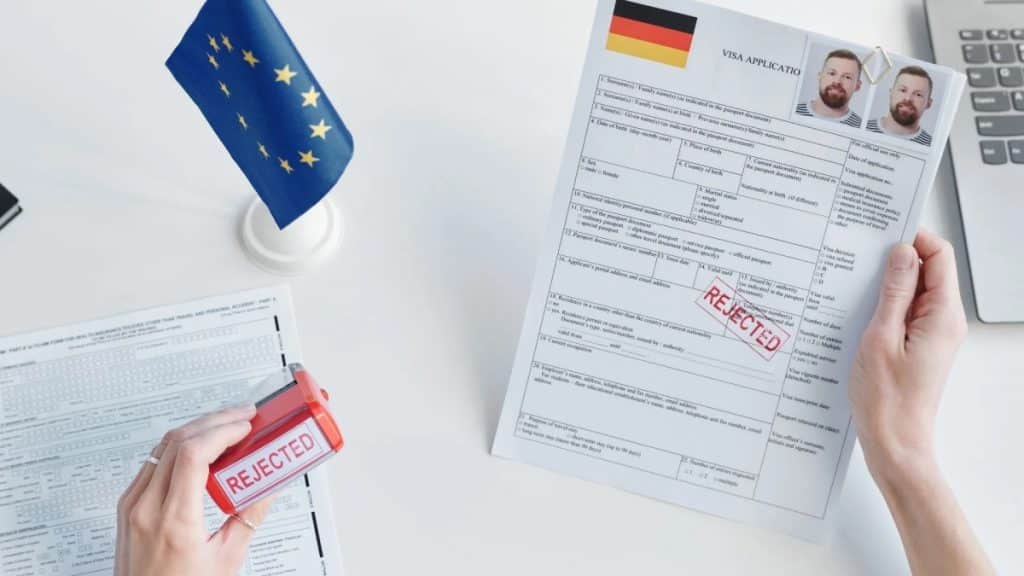The Schengen Area comprises 26 European countries that have officially abolished passport and all other types of border controls at their mutual borders. The new rules aim to simplify the visa application process, enhance security measures, and promote more sustainable and environmentally friendly travel. In this article, we will discuss the upcoming changes to the Schengen visa rules, and the most common reasons for Schengen visa rejection,.
New Schengen Visa Rules in 2024:
- Online Application System One of the most significant changes in the new Schengen visa rules is the introduction of a unified online application system. Applicants will be able to fill out their visa application form, upload the necessary documents, and pay the visa fee through a single online platform. This centralized system will streamline the application process and reduce the burden on consulates and embassies.
- Extended Application Submission Period Under the new rules, applicants will be allowed to submit their Schengen visa applications up to six months before their planned trip, as opposed to the current three-month limit. This extension will provide travelers with more flexibility in planning their trips and reduce last-minute rushes to consulates and embassies.
- Mandatory Travel Insurance Applicants will be required to have travel insurance that covers medical expenses, emergency hospital treatment, and repatriation costs. The minimum coverage amount may be increased from €30,000 to €50,000, but this is still not confirmed.
Common Reasons for Schengen Visa Rejection:
- Insufficient or Inconsistent Documentation One of the most common reasons for Schengen visa rejection is the submission of incomplete, inconsistent, or false documentation. Applicants must ensure that they provide all the required documents, such as a valid passport, proof of accommodation, travel itinerary, and financial means, and that the information provided is accurate and consistent across all documents.
- Failure to Demonstrate Sufficient Financial Means Applicants must prove that they have sufficient financial means to cover their expenses during their stay in the Schengen Area. This can be done by providing bank statements, pay slips, or sponsorship letters. Failure to demonstrate adequate financial resources is a common ground for visa rejection.
- Unclear Purpose of Travel Applicants must clearly state the purpose of their travel, whether it is for tourism, business, study, or medical reasons. The inability to provide a clear and convincing explanation for the purpose of the trip may lead to visa rejection.
- Previous Visa Refusals or Overstays Applicants who have previously been refused a Schengen visa or have overstayed their permitted duration in the Schengen Area may face a higher risk of visa rejection. It is essential to disclose any previous visa refusals or overstays and provide a compelling justification for the current application.
- Lack of Travel Insurance As mentioned earlier, travel insurance will become mandatory under the new Schengen visa rules. Failure to provide proof of adequate travel insurance coverage may result in visa rejection.
- Not having a proper passport: A valid passport is a crucial requirement for obtaining a Schengen visa. The passport must have at least two blank pages and be valid for at least six months beyond the intended stay in the Schengen Area. Applicants with damaged, expired, or otherwise invalid passports may face visa rejection. It is essential to ensure that the passport is in good condition and meets all the necessary criteria before applying for a Schengen visa.
Conclusion:
The new Schengen visa rules in 2024 aim to streamline the application process, enhance security measures, and promote sustainable travel practices. By understanding these changes and the common reasons for visa rejection, applicants can better prepare their applications and increase their chances of success. For those in New York, various passport services are available to assist with the application process, but it is crucial to remember that meeting all the requirements is ultimately the responsibility of the applicant. With proper planning and attention to detail, travelers can look forward to exploring the diverse and beautiful countries within the Schengen Area.
